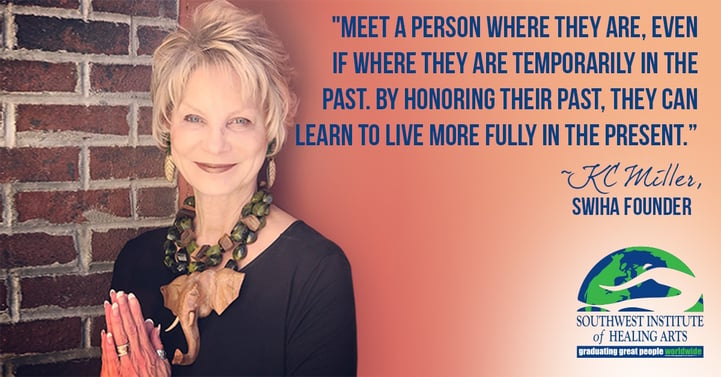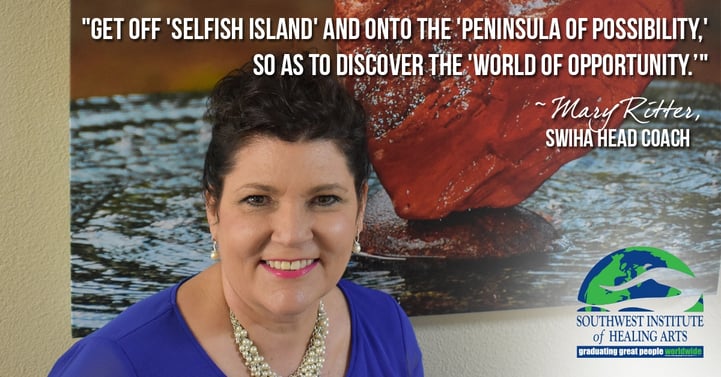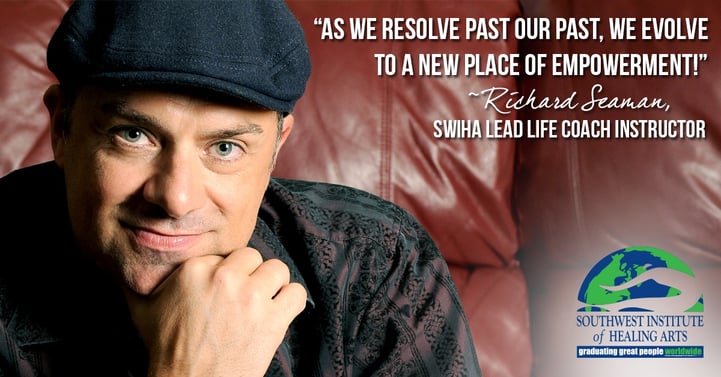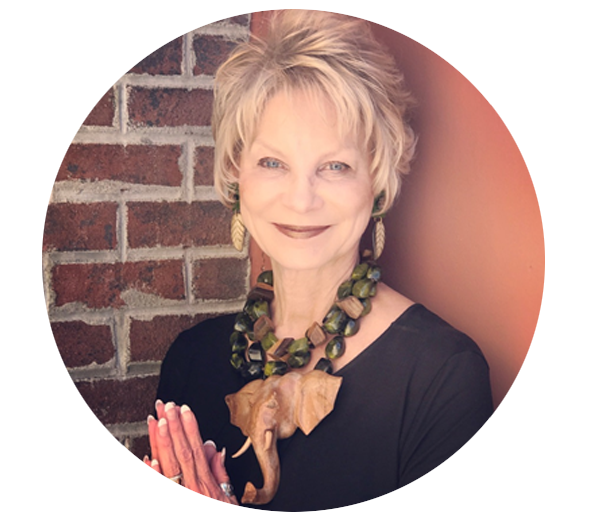Do you know your neighbors or those you work with very well? Do you know what their big dreams are (or were) and the things that prevent them from achieving them?
If you can say "yes" to truly knowing your neighbors or workmates, you are among the minority. According to a General Social Survey, more than a third of the population in the US says they don't know their neighbors at all, and over half admit that they rarely or never interact with their neighbors.
Sadly, I was part of that statistic. I've lived across the street for over 15 years from a woman I have barely spoken to or interacted with, other than an occasional wave as I was driving away to work or coming back home at the end of the day. No big deal, right? Wrong!
Just a few weeks ago, I was waiting to pick up dinner at the Wildflower Bread Company when an older woman with either knee or hip problems came rushing toward me and said in an accusatory way, "I don't think you know who I am?” I took a deep breath, looked directly into her eyes, and smiled before I said anything. It was my neighbor!
With another conscious breath I said, "Carol, [thank my lucky stars I remembered her name!], you’re right! Tell me what I should know!” We both laughed a little uncomfortably, yet she could tell I was ready to listen. Without needing any further invitation, she sat right down next to me and passionately began to explained that “in her day” she had always owned fast cars and often won at weekly drag races… that she wasn't always crippled up and homebound… rather, she used to be a gadabout just like me.
As you can imagine, there's a backstory to this sudden need to tell her story. About a month ago, I traded my conservative suburban SUV in for a really fun two-seated sports car. Even though it's an older used model, it caused quite a bit of interest with the car enthusiasts on our block, including my neighbor's husband. The day after I brought the little sporty roadster home, Darrel (who is married to Carol), came over to tease me about having a mid-life crisis. Having spoken less than two sentences to him in the past, I found myself making nervous conversation and sharing that at one time in my life I held the title of "fastest woman Corvette driver in Arizona" for two years in a row. Now mind you, this was over 25 years ago, so I'm not sure why I even shared that story— it certainly wasn't a valid credential today! The truth is, we live in the stories of our past, especially the ones about how “good we were.”
Piecing things together, I can only imagine that Darrel went home and told Carol my "old story,” which brought out her need to tell her "old story"! Oh, the humanity of it all! We get stuck in who we were!
Looking at this experience through a life coaching lens, I can’t help but love to discover new “ah-ha” moments like this! My big, big lesson was learning to consciously allow someone the time they need to tell the story that's important to them at the time. As Carol began to relay the details of her past, there was a part of me thinking about my salad wilting and soup getting cold… and yet, there was also a deep knowing within me that by listening to her with interest and curiosity, a healing was taking place.
As humans we all have a need to be seen and heard. One of the foundational principles of the SWIHA Life Coaching program is, “Meet the person where they are.” Moving forward, I know I will hold a modified version of this foundational principle: “Meet a person where they are, even if where they are temporarily in the past. By honoring their past, they can learn to live more fully in the present.”
The moment we take a deep breath and glance up from our own two feet, we will begin to see those standing in front of us on our path. Can you see why it's called the "Peninsula of Possibility”? “One conscious breath and one intentional eye connection turns an island into possibilities,” coaches Mary.
This concept is especially important for new entrepreneurs—as well as seasoned professionals—to understand as they seek to grow their businesses or private practices. Once on the “Path of Possibility,” the key is to keep breathing life into your vision; the more willing you are to take courageous steps toward others, making contact and connection, the more the world will open up for you to serve and offer your services.
Theodore Roosevelt may have said it best: “Nobody cares how much you know until they know how much you care.”
Consider the C.A.R.E. Formula for connecting with your neighbors or potential clients:
Consciously Choose
We must acknowledge the fact that as sole practitioners, hopeful entrepreneurs, or typical working individuals, we all experience times when we feel like we are on an island and disconnected from others. We are disconnected to the extent that we stay stuck in our story of disconnection and isolation. We must accept that the exit to “Selfish Island” is through serving others. In doing so, we find purpose. Albert Schweitzer, a humanitarian, philosopher, and physician who served in isolated parts of Africa, once said this: “I don't know what your destiny will be, yet one thing I know— the only ones among you who will be really happy are those who have sought and found how to serve.”
Attitude of Awareness
“People may hear your words, yet they feel your attitude,” counsels John C. Maxwell, author of many books, including How Successful People Think The pastor and Leadership Coach doesn’t use the term “Selfish Island,” although he does teach his students and clients to step outside of themselves, live above their current viewpoint, and elevate their attitude so that they might serve and lead others to greater heights.
Reaching out to Form Real Relationships
Anais Nin, an early feminist who wrote intensely personal essays about feeling isolated, shared this sage wisdom: “Each friend represents a world in us, a world possibly not born until they arrive, and it is only by this meeting that a new world is born.” This is a profound way of encouraging us to leave our island and seek the world of possibility that may just be in our next interaction with a neighbor, friend, workmate, or client.
Evolving Past Your Egos
Ego can be an acronym for Edging Good Out, which is exactly what happens when we stay isolated from neighbors, friends, and family. As Richard Seaman, the Lead instructor for SWIHA’s Life Coaching program often says, “As we resolve past our past, we evolve to a new place of empowerment!”
So, how well do you know your neighbors? As you move through this week, consider caring enough to be self-less and explore the world of friendship, healing, and opportunity. You never know what possibilities lay just around the corner!





